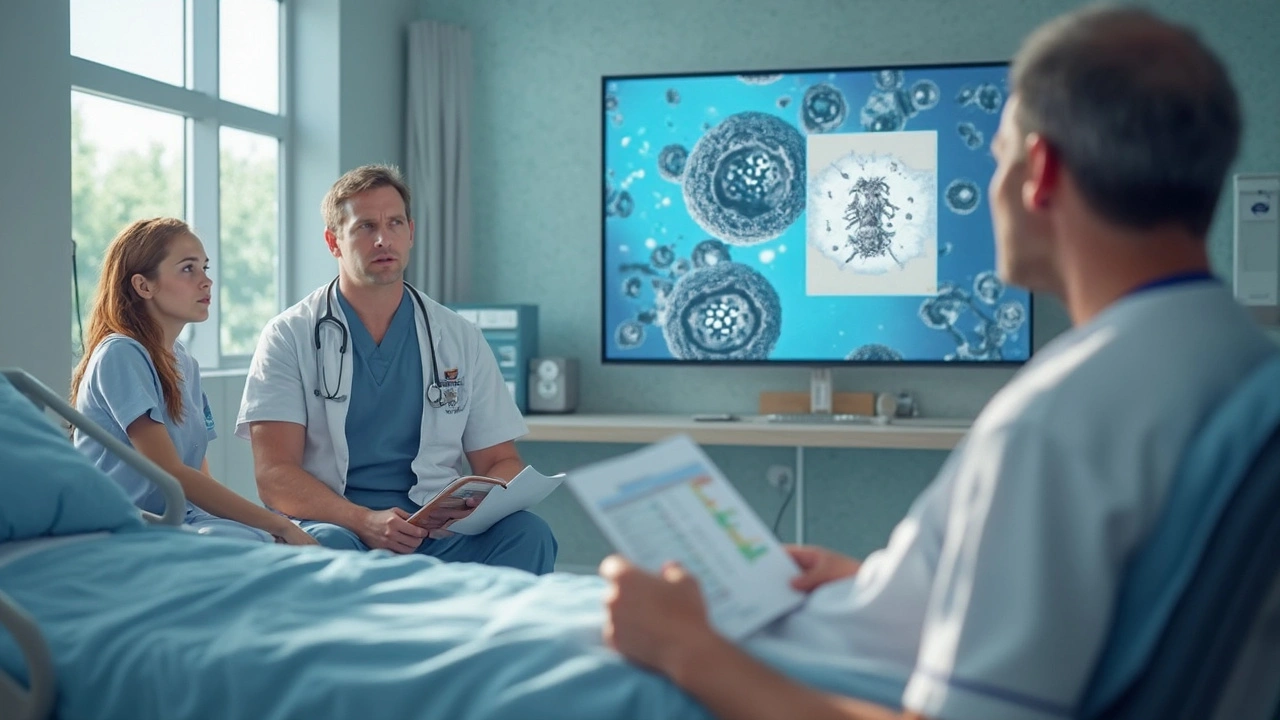Chemotherapy: Practical Guide for Patients and Caregivers
Chemotherapy is a key treatment for many cancers. It uses drugs to kill fast-growing cells. Side effects vary based on the drugs, dose, and your body. This page helps you understand what to expect and how to stay safer and more comfortable during treatment.
What to expect during treatment
Your chemo plan will list drugs, dose, schedule, and how long it may last. Treatments can be given IV, by mouth, or sometimes by injection. You may have clinic visits for infusions or take pills at home. Common short-term effects include nausea, fatigue, hair loss, mouth sores, and lower blood counts. Some drugs cause specific issues. For example, methotrexate can affect energy and exercise plans, so talk to your care team about safe activity levels. Your team will monitor blood tests often and adjust doses when needed.
Before each cycle, ask these questions: What side effects are likely? Which symptoms need urgent attention? Are there drugs to prevent nausea or infection? How should I manage medications I already take? Who is my contact for after-hours problems? Clear answers make each visit less stressful.
Practical tips to manage side effects
Keep a daily symptom log. Record temperature, nausea, bowel changes, mouth pain, and how tired you feel. Small logs help your doctor spot trends and act fast. For nausea, take anti-nausea meds exactly as prescribed and eat plain, small meals. For fatigue, plan short naps and accept help with chores. Gentle walking or light stretching often helps energy, but confirm with your team, especially if your drug list includes methotrexate or other agents that affect stamina.
Prevent infection by washing hands, avoiding sick people, and watching for fever. If your temperature rises above your care team's threshold, call right away. Mouth sores respond well to salt-and-soda rinses and soft foods; report severe oral pain. If your blood counts drop, your doctor may give growth factors or delay chemo until numbers recover.
Talk about fertility before treatment starts. Some chemo drugs can affect fertility long-term. Ask about egg or sperm banking and hormone preservation if that matters to you. Also ask about vaccines, since live vaccines may be unsafe during and shortly after chemo.
Medication safety matters. Only use chemo drugs prescribed by your oncologist and filled by trusted pharmacies. Never buy chemotherapy from unverified online sellers. Your care team can recommend accredited pharmacies or hospital services that handle these drugs safely.
Emotional support helps as much as medical care. Lean on friends, join support groups, or speak with a counselor who knows cancer care. Small routines, consistent sleep, simple meals, and scheduled check-ins with your team reduce uncertainty. If you want more on specific drugs or topics like exercise while on methotrexate, search our site for detailed articles and real-world tips.
Keep a folder with all treatment records, phone numbers, medication lists, and receipts. Bring it to appointments and update it after each visit, too. Good records make care smoother and safer. Always. Please.

Melphalan for Heavy Chain Disease: How This Drug Impacts Rare Blood Disorders
Step into the world of heavy chain disease and the unique role melphalan plays in fighting this rare blood disorder. This article explores real treatment cases, how melphalan works, and what patients should know about side effects and outcomes. You'll get practical insights, stats, and tips for managing this condition. If you've never heard of heavy chain disease, you'll walk away knowing why melphalan's still a go-to in the medical field.
read more